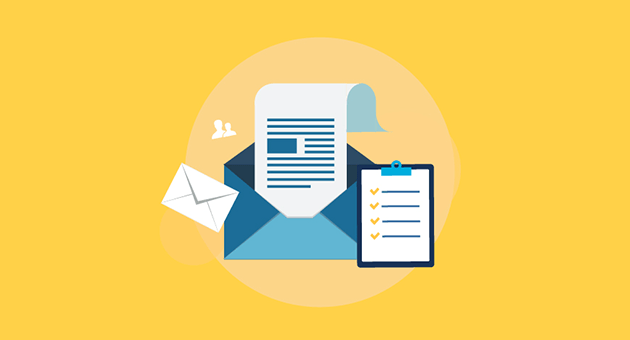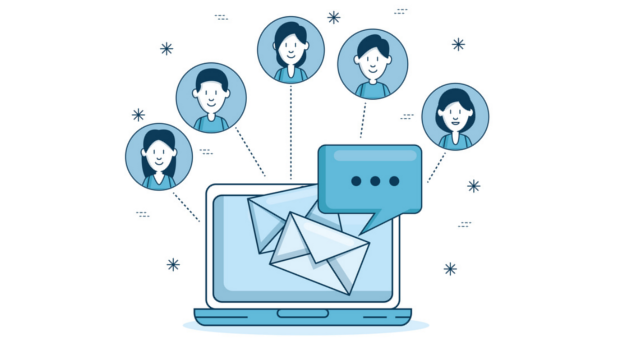
In the digital age, marketing strategies have evolved to keep up with changes in consumer needs.
One such strategy that has stood the test of time is email marketing.
Email marketing is a communication tactic that uses email to convey promotional or informative messages to an audience.
Despite its apparent simplicity, it remains an essential tool in the arsenal of any business due to its efficiency, cost-effectiveness and ability to promote lasting relationships with customers.
In this article, we will explore 10 unbeatable advantages of email marketing for your business and how you can start making the most of this strategy in your business operations.
- 1 Email Marketing Definition
- 2 Brief History and Evolution of Email Marketing
- 3 Advantages of email marketing
- 3.1 → Advantage 1: Saving money
- 3.2 → Advantage 2: Segmentation and Personalization
- 3.3 → Advantage 3: Measure and Analyze
- 3.4 → Advantage 4: Foster Long-term Relations
- 3.5 → Advantage 5: Integration with other marketing strategies
- 3.6 → Advantage 6: Automation
- 3.7 → Advantage 7: It can Reach more Users
- 3.8 → Advantage 8: Business Opportunity
- 3.9 → Advantage 9: Interactivity and immediate feedback
- 3.10 → Advantage 10: The highest return on investment (ROI)
- 4 How to implement an effective email marketing strategy
- 5 Success stories in Email Marketing
- 6 Conclusion
Email Marketing Definition
Email marketing is a digital marketing strategy that uses email as a channel to maintain contact with an audience and transmit messages.
These messages can have various purposes, such as promoting products or services, sharing news or updates, promoting customer loyalty or increasing brand recognition.
It is more than just about sending an email; email marketing implies a number of processes, including audience segmentation, messaging, monitoring performance metrics, and continuous optimization of campaigns based on these data.
Email marketing is a powerful and inexpensive tactic that allows businesses to reach consumers directly in their inboxes, providing relevant content that can be tailored to each customer’s individual needs and preferences.
Brief History and Evolution of Email Marketing
Email marketing began in the 1970s, right after the creation of the email.
The first email marketing campaign was created by Gary Thuerk for Digital Equipment Corp in 1978. He sent a promotional email to 400 users, resulting in a lot of sales.
In the 1990s, with the expansion of the Internet, email marketing became more common, since companies began to recognize its potential to reach customers through a direct and personalized tool.
However, it also became a means of spamming, which led to the creation of privacy and spam laws.
With the advent of segmentation and personalization technologies in the 2000s, email marketing became even more effective and customer-focused.
Today, it is an essential digital marketing strategy, characterized by its ability to adapt to the constantly changing needs of consumers and businesses.

Advantages of email marketing
Email marketing is an incredibly versatile and valuable tool in the digital marketing world.
Despite the growing popularity of social media and other forms of digital marketing, email marketing remains one of the most effective strategies for reaching customers and encouraging lasting relationships.
Now we will explore the 10 unbeatable advantages that make email marketing a key pillar in any digital marketing strategy:
→ Advantage 1: Saving money
Email marketing is one of the most profitable forms of digital marketing.
It doesn’t require major infrastructure investments, and you can even send a newsletter for free, depending on the size of your subscriber list.
→ Advantage 2: Segmentation and Personalization
Email marketing allows you to segment your customers based on various criteria such as demographics, purchasing behavior, and interaction with previous emails.
This allows you to personalize messages for each segment, increasing the relevance and response rate.
→ Advantage 3: Measure and Analyze
Email marketing platforms offer analysis tools that allow users to measure key indicators, such as open rate, click rate and conversion rate.
This allows you to evaluate the success of your campaigns and make the necessary adjustments.
→ Advantage 4: Foster Long-term Relations
Through email marketing, you can keep your customers informed and engaged with your brand.
By providing valuable content, you help foster a long-term relationship that can lead to loyalty and increased recurring purchases.
→ Advantage 5: Integration with other marketing strategies
Email marketing can easily integrate with other marketing strategies.
For example, you can use your social media profiles to increase your subscriber list or use email marketing to increase traffic to your blog or website.
→ Advantage 6: Automation
Most email marketing platforms offer automation tools, which means you can schedule emails that will be sent at specific times or in response to the actions of certain users, saving time and effort.
→ Advantage 7: It can Reach more Users
With email, you can reach an additional global audience without spending more money.
Also, unlike social media, you are not limited by algorithms that can limit your visibility.
→ Advantage 8: Business Opportunity
Email marketing can be a significant source of income for your business.
By directly promoting products or services or generating traffic to your website, email marketing can increase sales and business growth.
→ Advantage 9: Interactivity and immediate feedback
Email marketing allows for more interactivity, through surveys, comment forms or even games.
This not only makes your emails more engaging, but also provides immediate feedback that you can use to improve your future campaigns.
→ Advantage 10: The highest return on investment (ROI)
Due to its profitability and efficiency, email marketing offers a significantly higher return on investment (ROI) compared to other digital marketing strategies.
According to the Direct Marketing Association, every $ 1 inverted in email marketing can generate up to $ 38.

How to implement an effective email marketing strategy
→ Choosing the email marketing platform
The first step in implementing an effective email strategy is to choose the correct platform.
There are many options available on the market, each with its own advantages and disadvantages.
→ Creating an email list
The basis of any email marketing strategy is a high quality email list.
This list should be compiled only with people who have shown interest in your product or service and gave their consent to receive your emails.
You can build your email list through various tactics, such as offering a subscription to your newsletter on your website, promoting an exclusive offer in exchange for an email address, or even a giveaway or contest.
→ Designing email marketing campaigns
After choosing the platform and creating an email list, the next step is to design your email marketing campaigns.
This process involves several aspects, including choosing the type of email (e.g. promotional, informational, monitoring), personalizing the content for different segments of your audience, and planning and timing frequency of emails.
Every email you send should offer value to your subscribers and must be aligned with your marketing goals.
Remember that effectively implementing an email marketing strategy requires time, patience and constant improvement through measuring and analyzing your results.
However, with proper practices, email marketing can be an incredibly powerful marketing tool for your business.

Success stories in Email Marketing
The effectiveness of email marketing is not just theory, there are numerous success cases that demonstrate its potential.
Companies of all sizes and different sectors have used email marketing to achieve their goals, from increasing sales, attracting more web traffic to fostering customer loyalty and brand perception.
Let’s look at two examples of how email marketing promoted business success:
→ Success Story 1: Buzzfeed
BuzzFeed is a brilliant example of how email marketing can be used effectively to generate web traffic. BuzzFeed sends multiple newsletters with different types of content, from news and recipes to shopping and books.
Each email is created to attract the reader and motivate you to click on the links, which will bring subscribers back to the BuzzFeed website.
This strategy allowed BuzzFeed to maintain its audience engaged, thus consistently increasing its web traffic.
→ Success story 2: Zappos
Zappos, a popular online clothing and accessories store, used email marketing to improve customer relationships and increase sales.
When a customer leaves an item in the cart without completing the purchase, Zappos sends an email reminder with a friendly and personalized tone.
In addition, Zappos also sends custom emails with product recommendations based on customers’ purchases and previous interests.
This strategy resulted in higher open and click rates than average, and helped Zappos increase their sales and improve customer loyalty.
These two success cases demonstrate the versatility and potential of email marketing when effectively implemented.
With a well-thoughtful and customer-centered strategy, email marketing can be a powerful tool to achieve your marketing goals.

Conclusion
Email Marketing is a powerful and inexpensive tool that offers several advantages to companies.
You can segment and customize contacts, measure and analyze results, and generate a lasting relationship with your customers; This proves that along with the highest return on investment, email marketing is undoubtedly an essential component in any digital marketing strategy.
Furthermore, since you can integrate email marketing with other strategies, create different automation options, and reach a wider audience, you shouldn’t ignore this strategy.
Despite the growing rise of social media and other forms of digital marketing, email marketing remains vital.
Its effectiveness has been demonstrated over time, and the success stories of companies like BuzzFeed and Zappos are testimony.
Email marketing is currently one of the most effective ways to reach consumers through a direct and personalized channel, providing relevant content that can be adapted to each customer’s individual needs and preferences.
In short, email marketing is more relevant now than ever. If you’re not using it in your marketing strategy, you’re missing out on a great opportunity to connect with your customers and grow your business.
